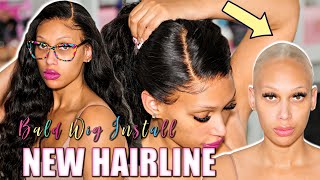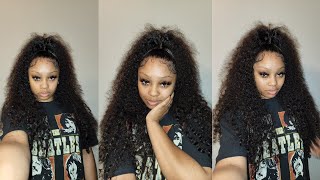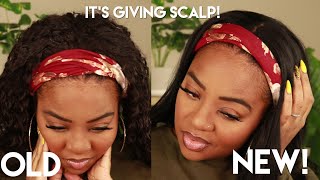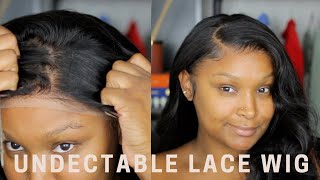How to Improve Your Scalp Health
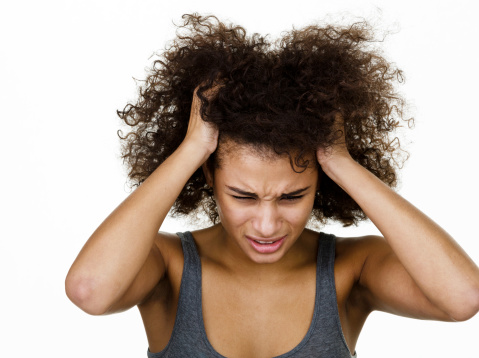
A dry, itchy, flaky scalp is downright annoying and not to mention embarrassing. Trust me, I have been there, I have been suffering from eczema for about nine years, so I know all too well the pain of a dry itchy scalp, and the embarrassing flakes that come with it. It’s so bad that sometimes I would scratch my scalp to the point where I am left with small sore patches in my head. Not cute, don’t do that!
There are ways to deal with this issue, personally I started with a dermatologist and a ton of research much of which I have condensed for you here. We want to make sure we drive home the fact that whether you have scalp issues or not it is very important to learn and understand how to improve your scalp’s health.
The thing is, maintaining a healthy scalp is really important to the health of your hair overall including hair growth. What is ironic is that we often worry about having long hair but refuse to put emphasis on the scalp, the source, the beginning and the foundation of our hair’s health.
So what is a healthy scalp?
Put simply, a healthy scalp effectively produces sebum which is the natural oil secreted from our scalp. A healthy scalp is also free of itch and irritation and does not have dry patches or flakes.
Additionally a healthy scalp facilitates hair and increases hair growth rate and your the hair that grows is much stronger. Achieving a perfectly healthy scalp is not an easy task, but it is possible. So allow me tell you how.
Keep your scalp clean
This sounds easy right? But it is not that easy for a lot of people. Keeping the scalp nice and clean is one of the first things to master while on your healthy hair journey. Shampoo or co-wash your hair as often as needed to maintain a clean scalp, for some that might mean once a week but for others it might mean twice a week or even every two weeks.
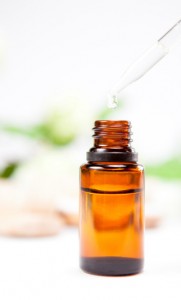 Only you can judge the state of your scalp’s health, if you are a faithful co-washer, then make sure that your scalp is washed properly and free of conditioner residue. When you condition your hair after shampoo you should also make sure that everything is rinsed out completely, especially from your scalp.
Only you can judge the state of your scalp’s health, if you are a faithful co-washer, then make sure that your scalp is washed properly and free of conditioner residue. When you condition your hair after shampoo you should also make sure that everything is rinsed out completely, especially from your scalp.
When in doubt, rinse again and make sure to massage your scalp while rinsing. We would also suggest to clean your hair in sections so that you can easily pay attention to your roots.
Need a quick tip? If you have dry scalp, dandruff scalp or eczema scalp, adding a few drops of Tea Tree oil* to your shampoo or conditioner in a container before washing is very helpful.
Tea tree* oil is great for treating any scalp condition that you might have and is also a great all round treat for your scalp. The antiseptic and anti-fungal properties of tea tree oil* will leave your scalp healthier with regular use. A few drops is all that you need.
Understand what’s going on in your scalp
It is important to get educated on what your scalp does and how it behaves, this requires your own research. For example, many of us mistake dandruff for dry scalp and other scalp conditions.
When our scalp itches and has small white flakes we instantly research on how to get rid of dandruff and apply oils* to our hair to relieve the problem. But is it really dandruff? Will oiling the scalp really solve the problem?
Dandruff
A scalp full of dandruff exists because of too much oil (sebum) production and not the lack of oil or moisture as we are made to believe. Jessica Wu, M.D. a Los Angeles dermatologist and assistant clinical professor of dermatology at the University of Southern California Medical School explains dandruff, she says:
“It is usually due to an over growth of harmless yeast. In some people, the yeast starts to feed on the excess oil and dead skin cells on the scalp, causing the skin cells to shed more frequently and clump into flakes.” -Dailyglow.com.
So, if dandruff is a result of excess oil, then adding oil is simply going to make it worse. It might seem as if you are treating the condition but adding oils* to a dandruff scalp only covers the problem. Before treating your scalp for dandruff, it is wise to first speak with your dermatologist.
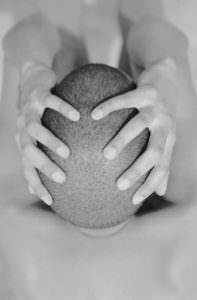 More tips to treat dandruff:
More tips to treat dandruff:
►Shampoo more often to remove excess oil and dead skin cells from the scalp. Massage the scalp while you shampoo.
►Do not leave oils on your scalp. Some natural oils like coconut oil* and Jamaican black castor oil* have great anti-fungal properties that are great however leaving oil on your scalp will not solve the dandruff problem. Instead, use these oils to give your hair and scalp a good hot oil treatment and then shampoo.
►Give yourself a good scalp massage few times a week
Dry Scalp
Moving away from dandruff for a bit and on to dry scalp, dry scalp is caused by a loss of moisture in the scalp. The main reason for excessive dry scalp is the use of drying shampoos especially those containing sulfates.
Other reasons for dry scalp are product build up, cold weather and diet. According to JC, a Material Scientist and natural hair educator and advocate from The Natural Haven
“Dry skin is a symptom of irritation in many cases. Something you are applying to your scalp could be irritating you. Change one product at a time and find the root cause of your issue“.
Tips to treat Dry scalp:
►Ensure that your scalp is clean by using a sulfate free shampoo* or conditioning cleanser.
►Change out one product at a time to find out what might be irritating your scalp.
►Do an Apple Cider Vinegar* (ACV) rinse to remove buildup from scalp.
►Moisturize your scalp with a water base mixture like water and oil mix spray.
►Occasionally, you can lightly oil the scalp with natural oils such as almond oil*, olive oil* or coconut oil*.
►Give yourself a good scalp massage few times a week.
Eczema
A scalp suffering from eczema often mirrors that of dandruff and we tend to treat it as dandruff. People who suffer from eczema can often see large dry flakes on their scalp and the scalp tends to be very itchy. Eczema is a skin condition that causes the skin to be dry, inflamed and irritated and it needs as much moisture as you can get on it to help alleviate the irritation.
Your scalp is an extension of your skin so if you suffer from eczema on other parts of your body, then it is very likely that what you are experiencing is eczema breakout and not dandruff.
Our best advice is to first see a dermatologist for a correct diagnosis of your eczema condition, and again get very educated on the condition, but there are a few things you can do yourself. If you want to alleviate some of the irritation caused from eczema, you must follow the tips on treating dry scalp (explained above).
Oh and did we mention you should massage your scalp? This cannot be stressed enough. Giving your scalp a good scalp massage a few times a week is not only pampering but also very beneficial to health of your scalp.
You will see a difference in how your scalp feels and will also see hair growth because regular scalp massage will increase blood circulation in the scalp. The moral of the story is, take care of your scalp it is the base of your crown.
How do you take care of your scalp?

